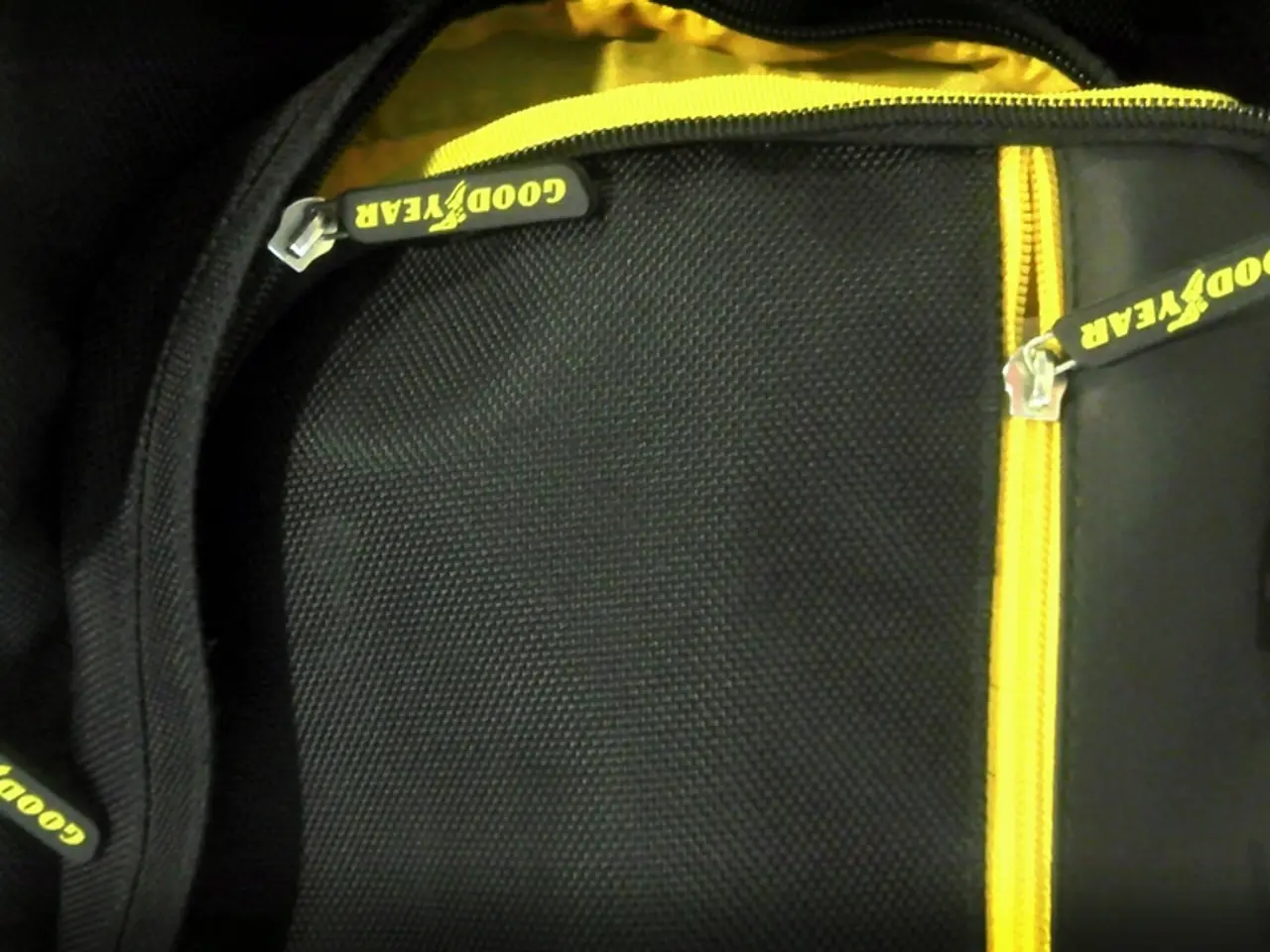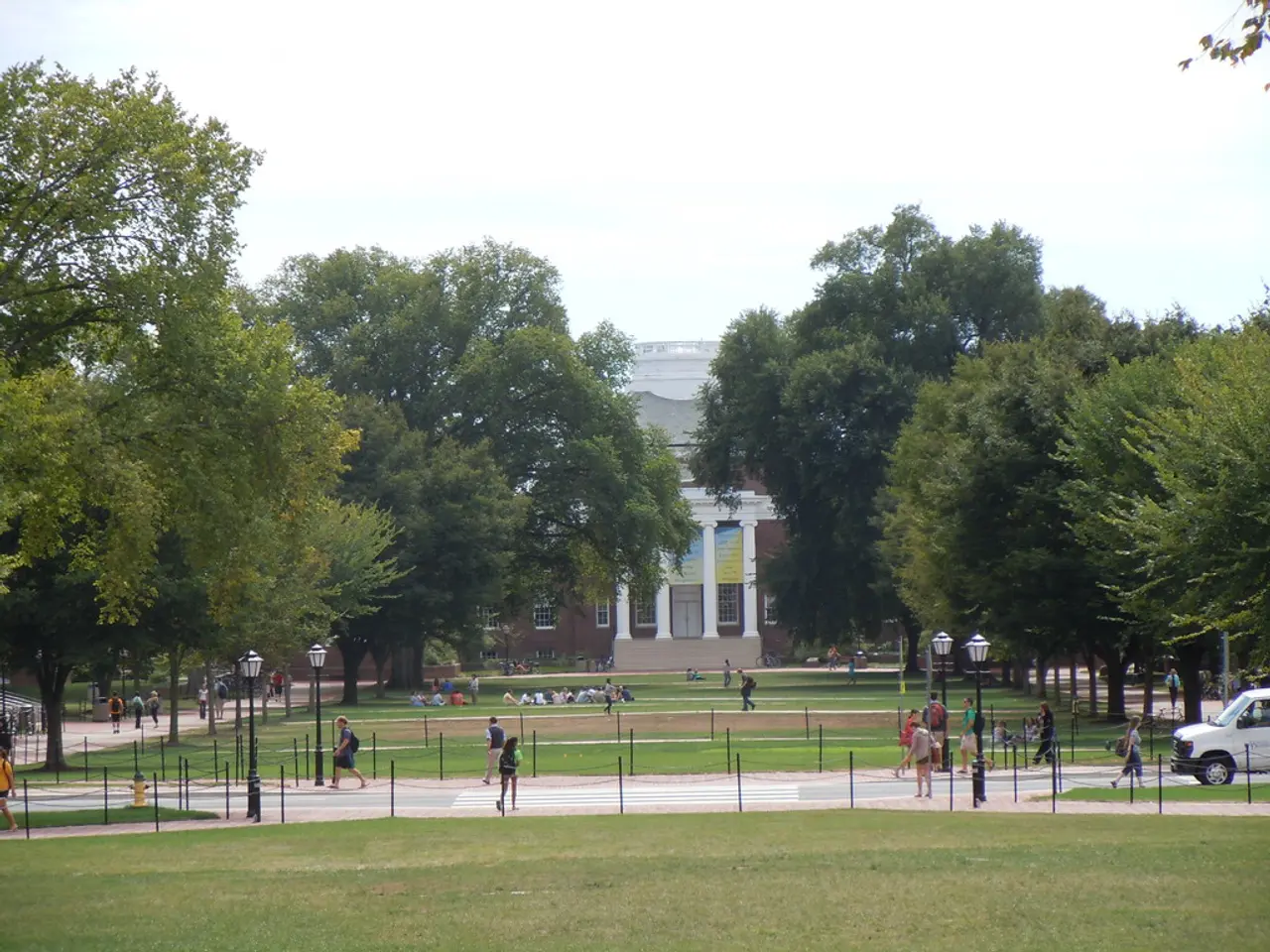Teachers at Pondok are urged to become proficient in Artificial Intelligence, according to Anwar's suggestion.
At the Universiti Teknologi Mara (UiTM) Machang campus, a significant event took place, marking the opening of the Kelantan Islamic Scholars and Pondok Teachers 2025 assembly. The event was graced by the presence of Religious Affairs Minister Na'im Mokhtar, Higher Education Minister Zambry Abd Kadir, and Kelantan Menteri Besar Nassuruddin Daud.
During his remarks at the event, Anwar, a religious leader, called for officials from the finance ministry to find a way to rebuild pondok schools as strongholds. He warned that failure to grasp the latest technologies could lead to a surge of "new wave of attacks" on traditional religious institutions. Anwar's concern was rooted in the potential risks posed by the digital age to these institutions.
Anwar also suggested a change in the approach to Artificial Intelligence (AI) framework, emphasizing the importance of instilling resilience, an understanding of Islam, intelligence, and wisdom in children. This approach aims to equip students with the necessary skills to navigate the digital age while maintaining their religious beliefs.
The Malaysian government has taken note of Anwar's suggestions and intends to rebuild and upgrade pondok schools by maintaining their traditional religious core while integrating AI, Technical and Vocational Education and Training (TVET), and other modern technologies. This approach aims to complement the existing religious syllabus without replacing it, thus equipping students with relevant digital and technical skills for contemporary challenges.
The initiative involves collaboration between the Ministry of Finance and the Islamic Development Department (Jakim) to upgrade religious and pondok schools with new facilities and technology. The Prime Minister has expressed the intention to restore and elevate pondok schools to safeguard the faith, morals, and character of the Muslim ummah in line with current needs.
Funding for these upgrades has been allocated, with Prime Minister Anwar Ibrahim contributing RM1.03 million during the National Umara'-Ulama Pondok Dialogue. This initiative is positioned as a non-political, public interest effort focused on reducing educational inequality and integrating pondok students into the national mainstream.
In conclusion, Malaysia aims to modernize pondok schools responsibly by blending traditional religious teachings with AI and technological skills, supported by enhanced infrastructure and strategic governmental cooperation to prepare students for the digital age. This move is a testament to the government's commitment to equipping the future generation with the necessary skills to thrive in the 21st century while preserving their religious and cultural heritage.
[1] The Star Online. (2023, March 1). Malaysia to modernize pondok schools with AI and TVET. Retrieved from https://www.thestar.com.my/news/nation/2023/03/01/malaysia-to-modernize-pondok-schools-with-ai-and-tvet
[2] Bernama. (2023, March 1). Anwar calls for rebuilding pondok schools as strongholds. Retrieved from https://www.bernama.com/en/business/news.php?id=1994576
[3] New Straits Times. (2023, March 1). Malaysia to rebuild pondok schools with AI and TVET. Retrieved from https://www.nst.com.my/news/nation/2023/03/744328/malaysia-rebuild-pondok-schools-ai-and-tvet
- Anwar Ibrahim, as a religious leader, has suggested a integration of Artificial Intelligence (AI) and Technology Vocational Education and Training (TVET) into pondok schools in Malaysia.
- The Malaysian government, led by Prime Minister Anwar Ibrahim, has earmarked funds for upgrading religious and pondok schools with new facilities and technology.
- The goal of modernizing pondok schools in Malaysia is to equip students with digital and technical skills for contemporary challenges, while preserving their religious beliefs and cultural heritage.
- Higher Education Minister Zambry Abd Kadir, alongside other officials, attended an event at Universiti Teknologi Mara (UiTM) Machang campus, where Anwar Ibrahim called for a rebuilding of pondok schools as strongholds against the risks posed by the digital age.
- The Malaysian government's initiative to modernize pondok schools aims to reduce educational inequality and integrate pondok students into the national mainstream, while preserving the faith, morals, and character of the Muslim ummah in line with current needs.




